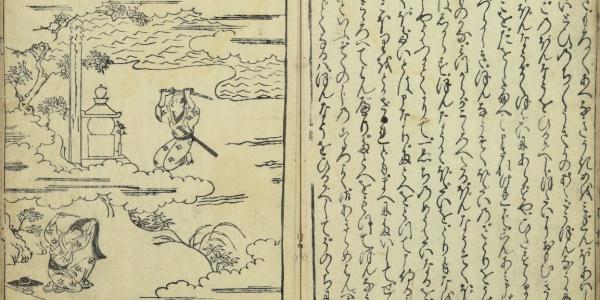Robert Morrell Memorial Lecture in Asian Religions: Care for the Dead in Japanese Buddhism: the Body, the Five Elements, and the Absolute
As it developed through the medieval period and into the early modern (circa 1200-1700), Japanese Buddhist death ritual across various sects adopted tantric modes of ritual, using the language and symbolism of so-called “Esoteric Buddhism” (密教 mijiao, mikkyō). Over the course of this period the rhetoric of transforming the dead into Buddhas became increasingly widespread and common. Professor Glassman's talk will introduce some of the doctrinal elements that lie behind this soteriological approach and will examine a few physical expressions of these ideas. He hopes to be able to share the way that abstract religious ideas intersect with physical objects and ritual action in remembering and caring for the family dead in Japan.
Glassman's scholarly research focuses on religion and gender in the history of medieval Japanese Buddhism. He addresses questions such as how did men, women, and families imagine themselves, their world and their place in it, in Japan from the twelfth century’s courtly ideals, to the civil wars of the fifteenth century, to the urban bustle of the seventeenth century?
The Morrell Memorial Lecture in Asian Religions commemorates the work of the late Professor Emeritus Robert E. Morrell, a specialist in Japanese literature and Buddhism who taught at Washington University for 34 years and who holds special significance for the campus, as Morrell was the first to teach a course on Buddhism. This annual series commemorates his life work by bringing distinguished scholars of Asian religions to campus.
This lecture is cosponsored by the Department of East Asian Languages and Cultures and the Program for Religious Studies.
Reception to follow.

